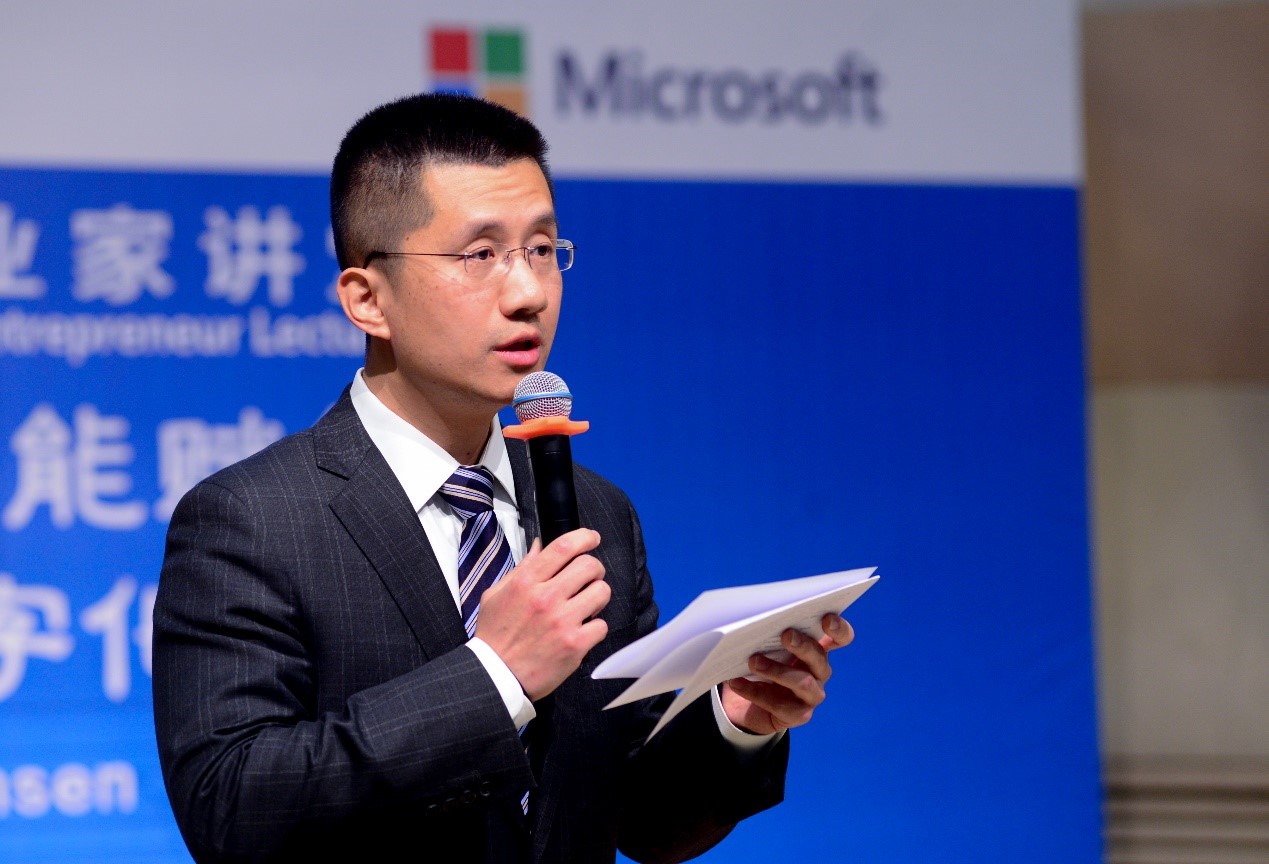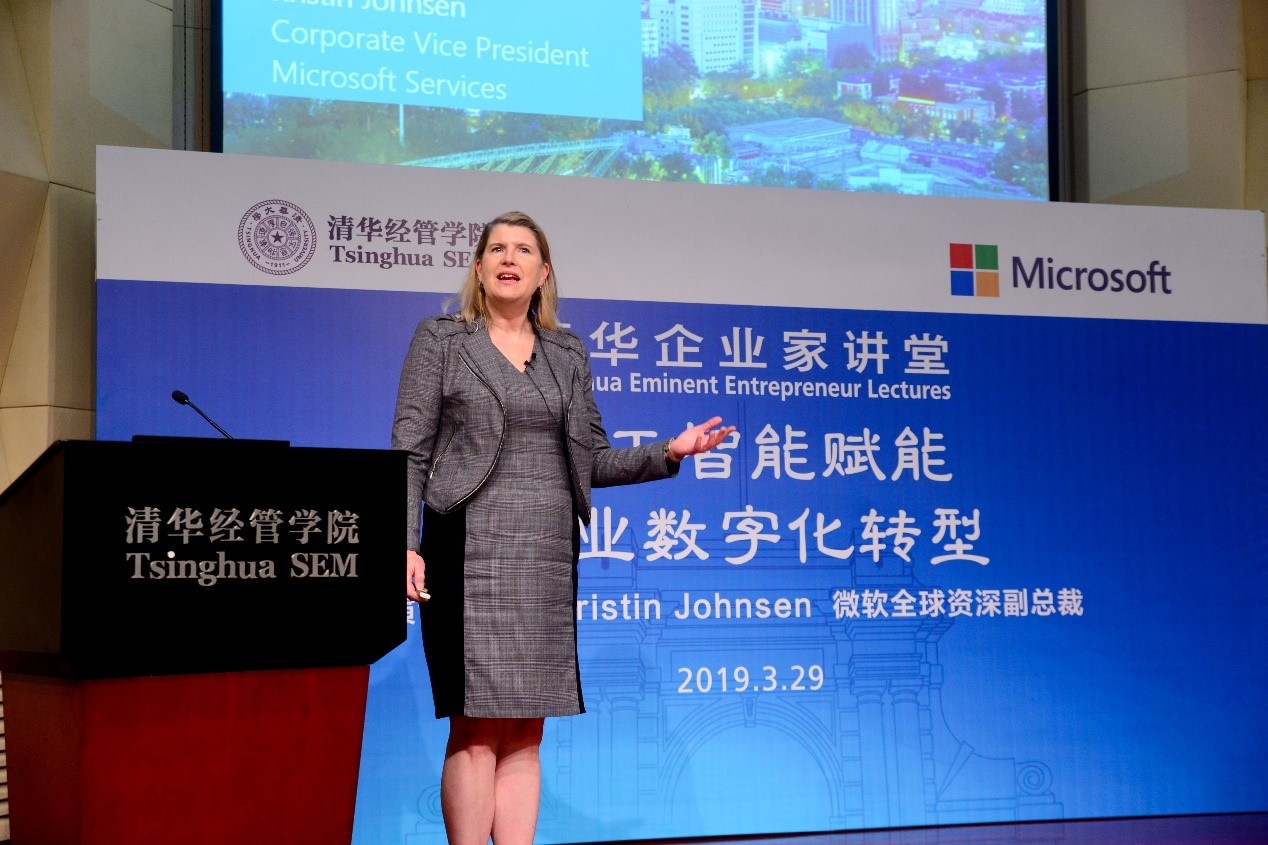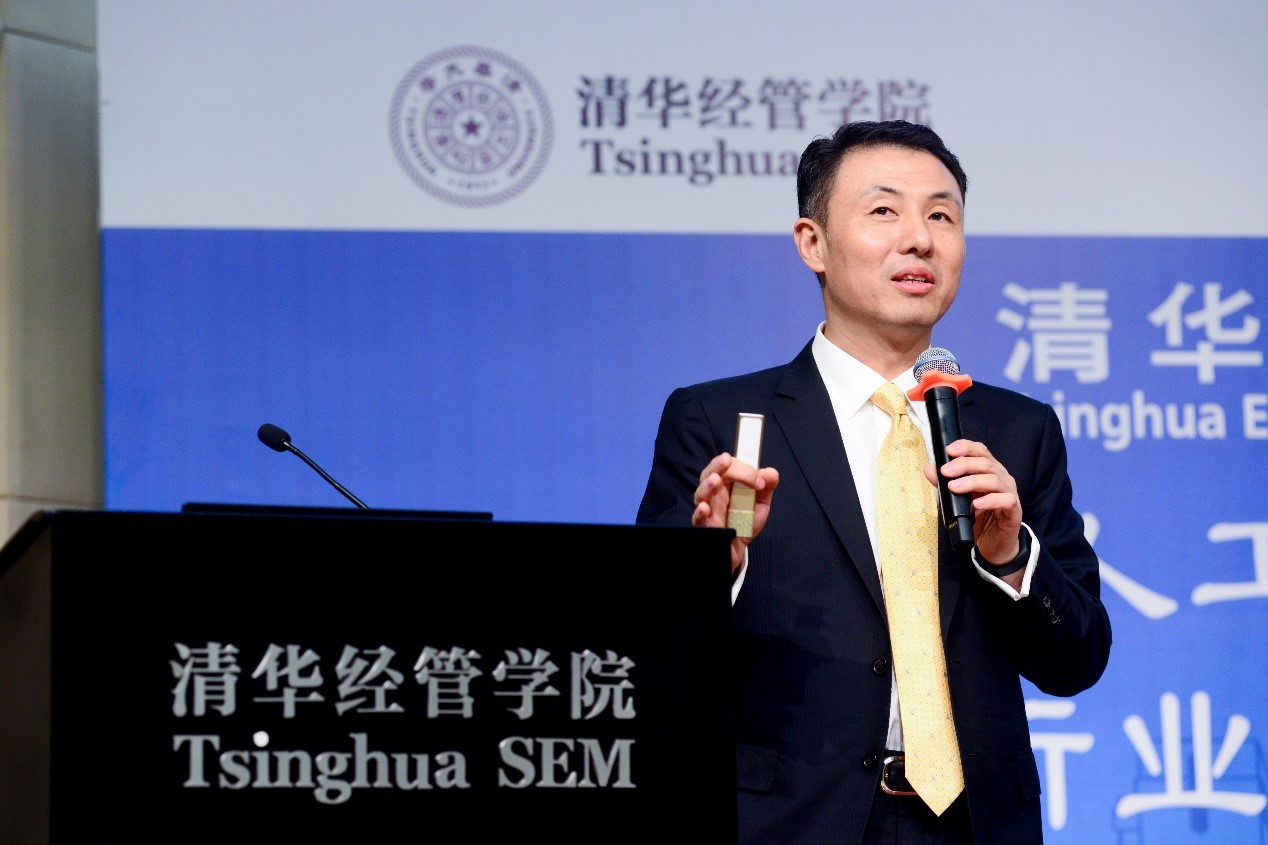- The Era of Artificial Intelligence (AI) has arrived
by Kek Chee Swee Jeremy
“If not you, then who?” Kristin Johnsen asked a diverse group consisting of Tsinghua professors and students who have gathered to hear about her talk on Artificial Intelligence (AI). Corporate vice president of Microsoft Services was referring to the next generation who will lead the introduction of AI into mainstream, an initiative she believes will be significant towards our advancement as a civilization.
The Friday afternoon event was opened by Professor Xu Xin, Associate Dean of Tsinghua SEM who gave an introduction of Microsoft, which he confidently declared as a company “everyone is familiar with”. Professor Xu also highlighted Ms. Kristin Johnsen long list of achievements before she leads a Microsoft global team of more than 16,000 employees who work with customers to help accelerate their journey to becoming digital businesses.

Professor Xu Xin, Associate Dean of Tsinghua SEM, giving an opening
AI as a game changer
Throughout the 90 minutes event, Kristin constantly emphasized the value and potential that AI would bring. Kristin compared the significance of AI to the introduction of steam engine in the 17th century and the shift towards digital age in the 20th century. She shared how AI has the potential to transform the way we perceive information, influence our daily decisions and overhaul entire industries entirely. Kristin also gave examples such as how Barilla, an Italian consumer food company, and Rolls Royce, a British engineering firm, has leveraged AI technology to revamp their business models completely and create more value for their customers. Kristin pointed out that businesses must have a strategy to prepare for this incoming wave of transformation or risk losing out forever. Such a scenario would be undesired because it would result in a “winner takes all” when instead, technology should be here to create opportunities for everyone.

Kristin Johnsen sharing the capabilities of AI with students
Implementation of AI - Challenges
Nevertheless, Kristin also conceded that there is a considerable way to go before AI would reach its full potential. Kristen describe the current technology as esoteric to even most Fortune 500 companies’ executives and highlighted the challenges AI face before it could be accessible to the public. She admitted that AI still remains a field that is, at least for now, only accessible to “PhD programmers and developers”. She further explained that ease of use of AI is a top priority at Microsoft as it would be a problem if everyone is using a technology that they understand little about. This risk AI being a system with little transparency. Kristin also touched on other challenges in the implementation of AI such as the need for constant update on the AI system. This is because she believes it is the responsibility of users of AI to feed the system with the most updated data and to ensure that these data do not consist of any flaws or bias that would be further amplified in a world of AI.
Current State of AI in China
Following Kristin’s presentation, Richard Feng, General Manager of Microsoft GCR Services,gave the audience of an overview of the state of AI in China. He started by stating that AI is a national strategy that is recognized and supported by the government and that China aims to be the center of AI’s innovation in a decade. In his vision, he mentioned that AI would be imperative towards to China’s push for rapid economic development. Highlighting the huge increase in productivity if successful. Although he also admits that the incorporation of AI with Chinese companies would be a major challenge towards this endeavor.

Richard Feng, giving an overview of AI technology
During his presentation, Richard shared a short clip of how Jabil, a manufacturing service company, uses AI image recognition capabilities to detect damaged chips rapidly and in the process saving huge labor and maintenance costs. Richard ended his presentation with another video clip showcasing how BMW employs AI to build an intelligent voice assistant which is able to respond to a variety of commands from climate control to checking on tires pressure.
The final portion of the talk allowed students to raise their questions. Kristin addressed how Microsoft as a company is committed to following the regulatory environment in wherever they operated and how Microsoft as a company shifts their culture to empower its own employees to be prepared for the upcoming wave of AI’s implementation.
A student raising his questions during the Q&A section
Quantum Computing – The next Big thing?
In her closing during the Q&A section, Kristin offered audience another glimpse of the future when she was asked about the next big thing after AI. She said that she believed quantum computing would be the next game changer when fully ready. Lighting speed computing would lay the path for entire new ways of using digital tools, although she also predicted that in a world of quantum, encryption would no longer work since passwords can be easily decoded in lightning speed. A fascinating revelation to an insightful afternoon.

Photos of the event